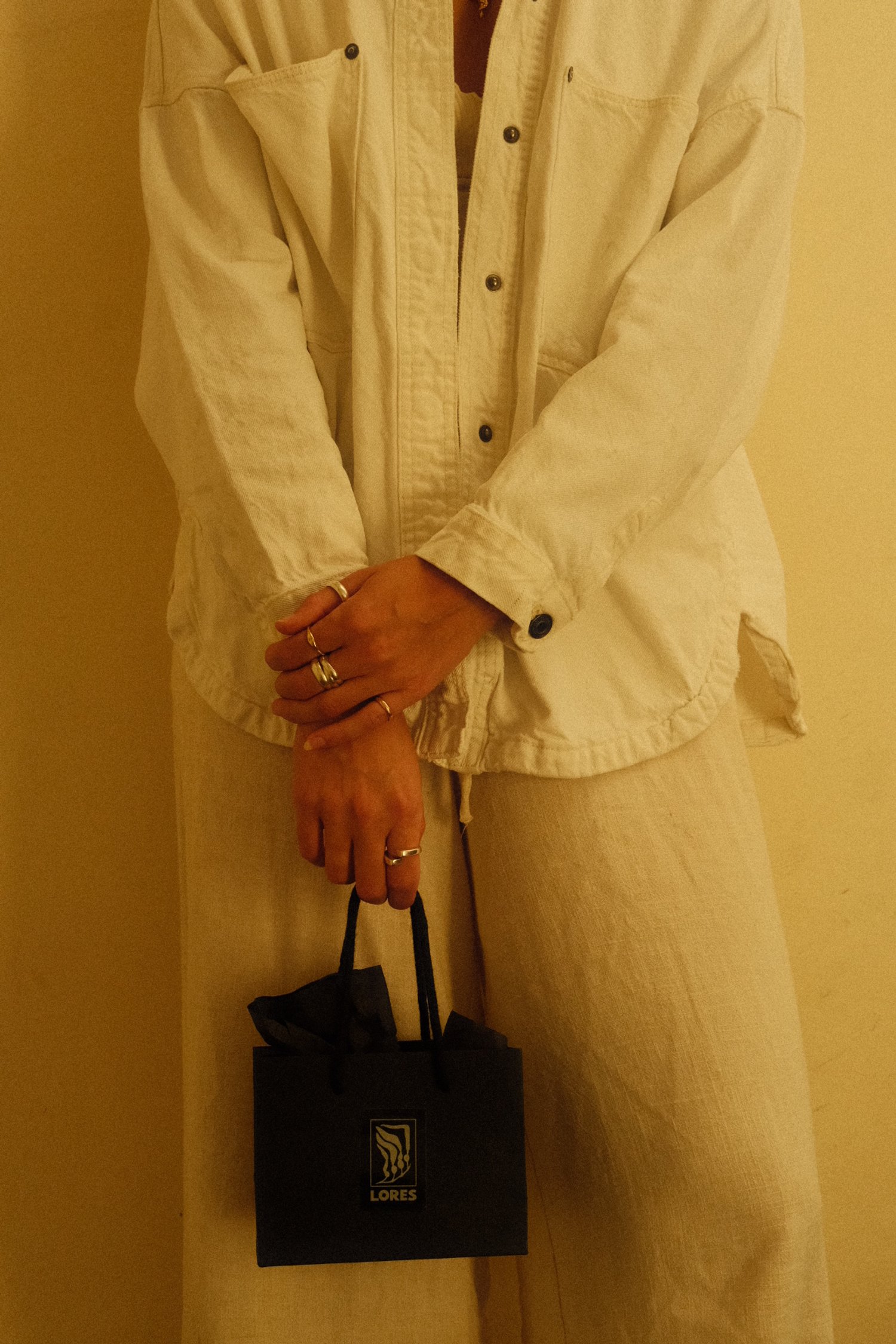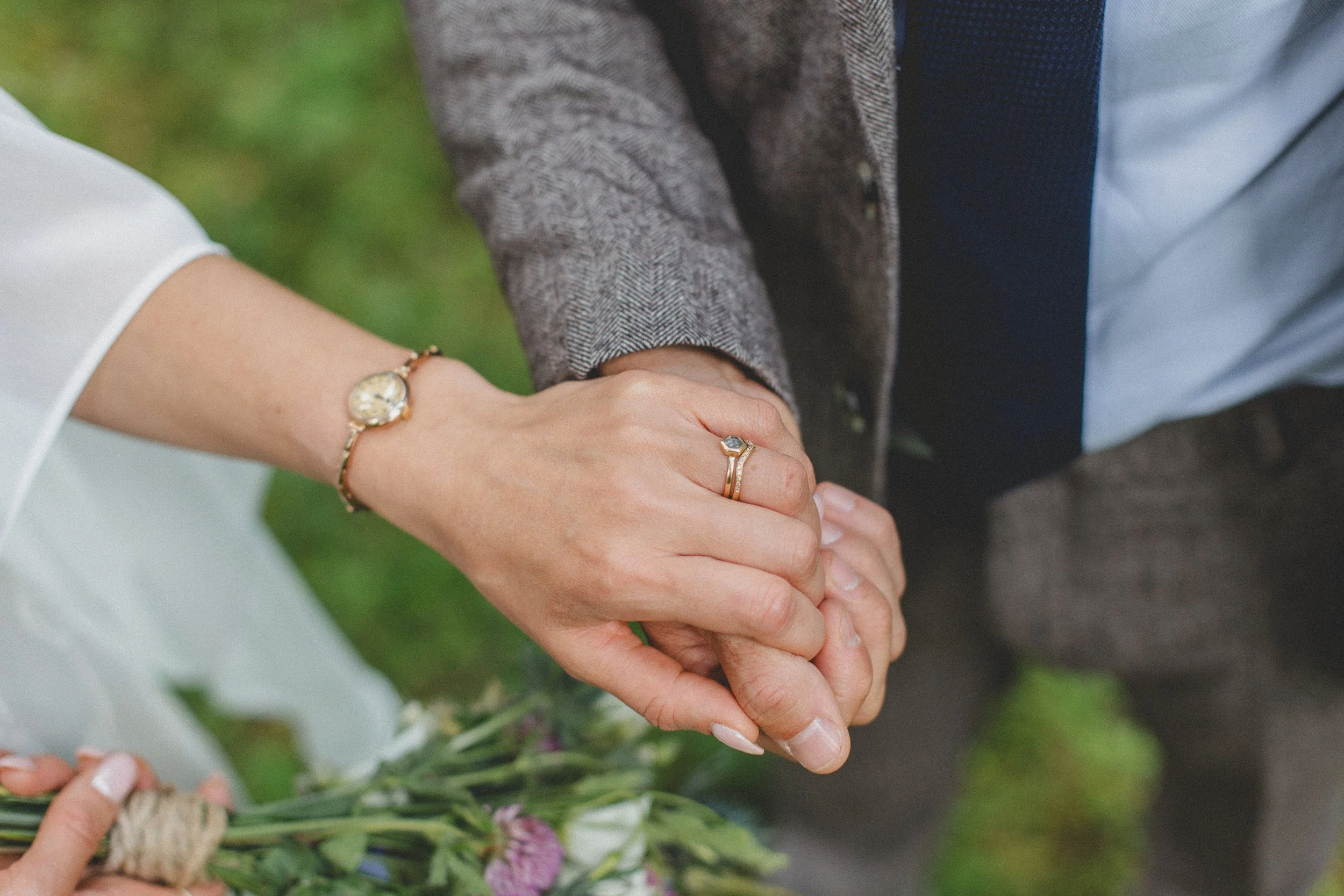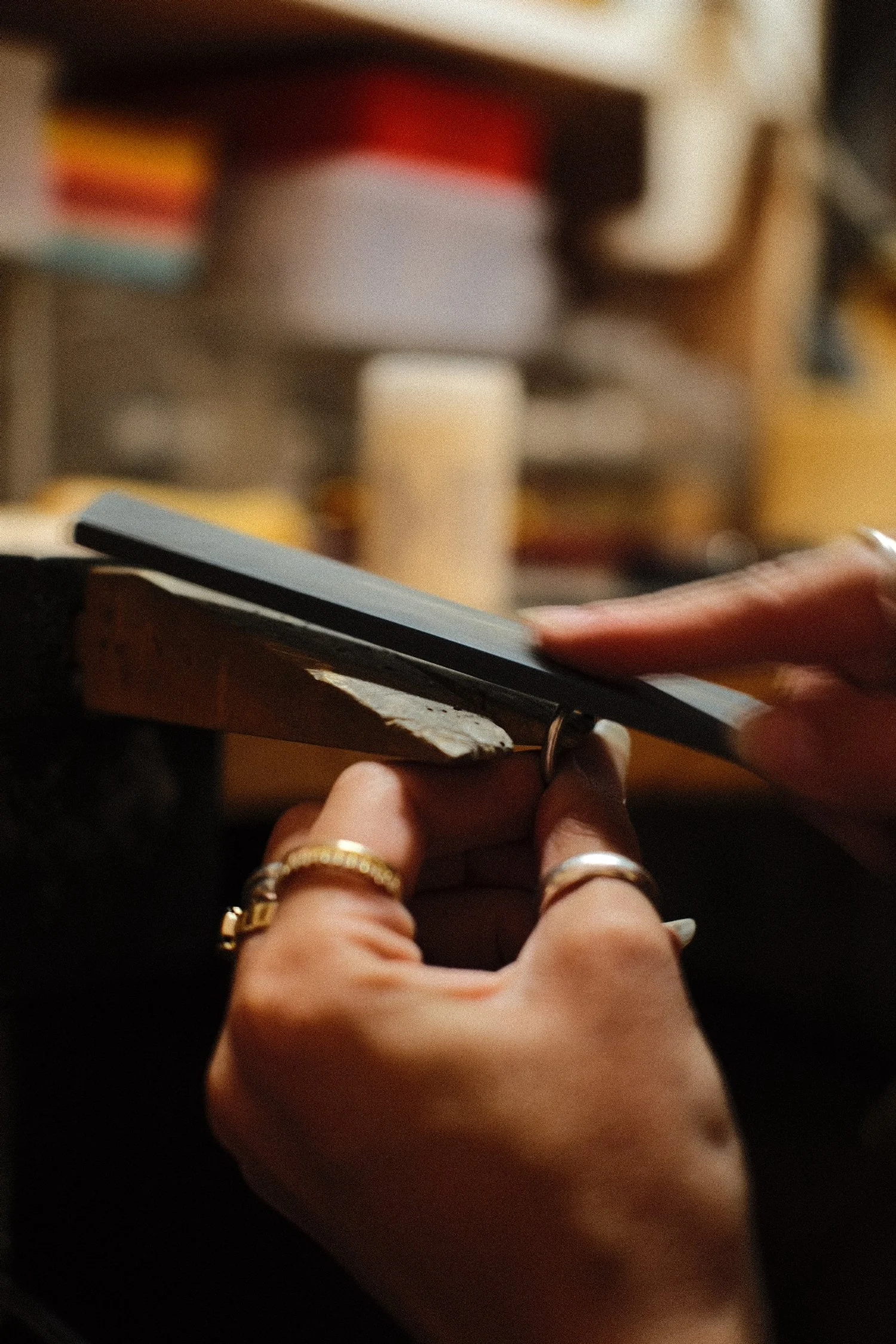
Help and care for your jewellery
Questions about sizing or caring for your jewellery? With this page we hope to provide answers to some common queries.
If your question hasn’t been addressed, or you need any more information, please get in touch with us and we’ll be happy to help.
Need help with finding your ring size?
For necklace sizing, there are many helpful images on the internet of how long chains sit on the neck. Alternatively, you can measure your favourite necklace with a ruler or tape measure. You can also use a piece of string the correct length and measure that too, and remember the Lores team is always happy to help with any sizing issues via email or a virtual appointment.
It can be difficult to understand ring sizing and how to measure your size for the ring you are purchasing, so here are some handy tips.
If you're purchasing a ring and are unsure of your size, we have ring sizing sheet which can be posted to you which can be used again and again or be passed on to a friend or family member once you have used them. When it arrives with you and you have measured your size, please let us know your size so Lores can begin making your custom ring.
The best and most accurate way to be sized is at a jewellers. It is a very normal thing to ask, so don’t be shy as any friendly jewellery shop would be happy to help you.
If a bespoke ring or store item needs to be your ring size and we have measured you, we won’t charge for re-sizing that piece. If you size your finger at home, the jewellery arrives, and needs re-sizing, our services start at £45 for Lores jewellery and £100 for non-Lores. Please enquire below if you are in need of a re-sizing.
This table shows UK ring sizes (letters) in internal circumference (mm).
GEMSTONES
Just as the sun’s rays/acids in skincare/cleaning products can damage our skin, light, heat and chemicals can affect a coloured gemstone’s durability and colour. Pearls and other delicate materials, such as ivory, turquoise and opals, can be affected easily by even the products in shampoos and shower gels. Other gems, especially amber, can darken over time when exposed to too much light. Excessive heat and sudden temperature changes may also fracture some gems. Heat and astringent cleaners can easily remove the natural moisture these gems need to keep their beauty. Pearls, for instance, can dry out, crack and discolour. Opals can turn white or brown, develop tiny cracks, and might lose their play-of-colour.
Since many natural gemstones can be quite delicate, avoid contact with hot water, harsh chemicals and cleaners. Clean your gemstones with a clean, soft, damp cloth after wearing. Alternatively, a soft toothbrush with very mild and fragrance-free soap is perfect to get into small settings and clean under stones. Very porous stones such as turquoise, howlite and emerald should be cleaned with water or a dry cloth only.
Jewellery Care
The jewellery we make is designed to last for the years to come, but all precious jewellery will naturally tarnish over time. Do your best to protect your jewellery from knocks, scratches, chemicals, sunlight, and heat/cold to minimise these effects.
GENERAL ADVICE
Store your jewellery in a soft, lined box or pouch with an anti-tarnish strip. Try to keep pieces apart so they don't rub together.
Your jewellery will age and tarnish naturally. If you want to keep your pieces in pristine condition, clean your jewellery regularly using a professional jewellery cleaning product. Always read the manufacturer’s instructions.
Try to avoid swimming wearing your jewellery, as chlorine in swimming pools can cause damage to all metals and will erode gold jewellery.
Avoid wearing while cleaning, gardening or exercising.
GOLD PLATED
Gold plating can wear off over time, do not wear gold plated jewellery all day, every day, in the swimming pool, or shower if you wish it to last a long time. Taking this kind of care will ensure you enjoy them for much longer. Clean in a mild dishwashing liquid diluted in water, gently if you’d like to spruce up your jewellery at home. Use of a polishing cloth or strong jewellery cleaner is not recommended, due to the nature of plated jewellery.
SILVER
Keep silver jewellery away from harsh chemicals like household cleaning fluids as they create abrasions and reduce the lustre of the metal. Thoroughly dry your silver jewellery after exposure to water. Sweat, chlorine (swimming pools) and salt water (swimming in the sea) can tarnish and corrode the surface. It's best to store silver in individual, air-tight bags with anti-tarnish properties. If you do not have these, then a jewellery box away from the bathroom is best.
GOLD
Gold is a soft metal, which makes it susceptible to dings, scratches, and dents. Be mindful of your gold rings, pendants, and bracelets while wearing them, and remove them while using tools or anything similar. Chlorine can weaken your gold’s structure and may eventually lead to it breaking. Make sure to take your jewellery off before getting in a pool or spa.
Cover or remove while cleaning: household cleaners with acids or abrasives will damage your jewellery’s finish. Be sure to use rubber gloves while cleaning (we recommend doing this anyway to protect your skin) or remove your jewellery altogether. Put your jewellery on last when getting ready to go out: makeup, perfume, hairspray, and lotions can damage your gold.
Repairs
Repairs
Have you not worn your wedding ring for a while because it’s a little snug?
Have you inherited a ring but a stone has fallen out?
Have you recently broken a chain?
Lets solve that.
FAQS
-
At Lores we have a decade of successful repairs behind us, these include (but are not limited to):
Re-sizing rings
Re-setting gemstones
Sourcing missing stones
Fixing broken chains
Re-attaching pendants to chains
Re-engraving initials and patterns
Clean + polish of jewellery
-
We typically advise between 4-6 weeks for repairs. If components or gemstones are being sourced then please allow a longer timeframe for your job.
-
Yes! we specialise in all types of jewellery cleaning and can even give you helpful advice on cleaning your jewellery yourself in the future.



